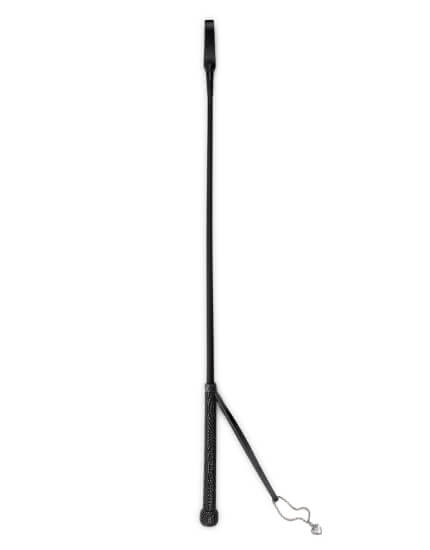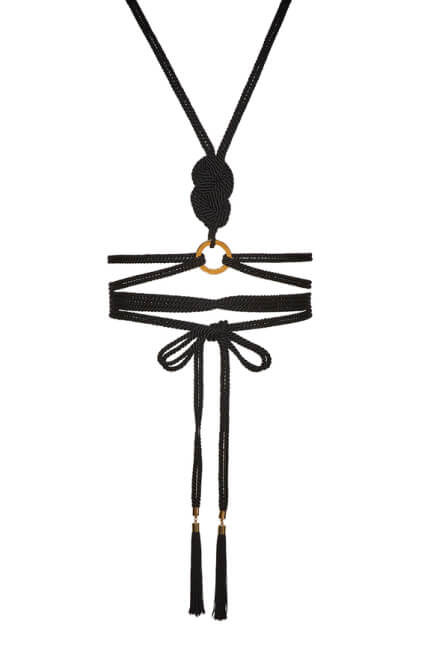[ad_1]
Can Bondage Help You Understand Your Sexual Boundaries?

Particularly in heterosexual relationships, there’s little to no discussion about sexual boundaries. Many of us women are so used to pleasing other people that we often do things out of guilt instead of desire. A lot of us learned this as kids: We were taught to give hugs to people we didn’t really want to hug, to worry about someone’s else’s satisfaction over our own, and to prioritize performing well for our parents or teachers. And we carry that teaching into our adult friendships, relationships, and sex lives.
When I think back on my early sexual experiences—which I did for my latest book, Sex, Health & Consciousness—I realized I didn’t have an innate concept of boundaries at all. It’s hard to speak up about what feels right to you (and what doesn’t) when you’re a teenager and you feel like you’re going to be judged for not doing something everyone else seems to be doing. Or when the only communication from your partner is them wordlessly pushing your head down so you’ll give them oral.
Maintaining our sexual boundaries is a constant practice that most of us aren’t trained in. But there are so many great people teaching boundary-building professionally—particularly mistresses of the ropes who work with bondage as a healing modality. A lot of their clients are people reclaiming their body after trauma or assault. When you work with a professional, before anything else happens, you have a thorough discussion about what your boundaries look like and what shape your experience might take. It can be a powerful tool for learning your boundaries and speaking up about them.
Understanding Your Boundaries
If you’re into meditation or yoga, you might be familiar with the practice of staying present in your body. Bondage can be a helpful tool in the same way. In bondage, you have to be present. You have to breathe. You have to understand where your edges are and be able to share them with your partner or practitioner. A lot of people don’t have practice in naming their boundaries like that—or even in knowing what their sexual boundaries are.
Here’s what it might look like in practice: Pause and notice what you are feeling in your body and where. Where are you feeling that discomfort, or that fear, or that shame? Are you feeling it in your chest? Are you restricting your breath? Are you feeling it in your gut? In your bowels?
Once you identify what you’re feeling and where, investigate it. Try asking yourself a question about where the feeling is coming from. Who am I trying to impress? Or: What am I trying to prove? We’re our own worst critic. We’re constantly judging ourselves. If I am in a situation and I think, Oh my god, they’re going to think I’m so uncool because I’ve never been tied up before, it begs the question of whether I feel safe in that situation. Am I crossing my boundaries trying to impress this person? Am I being honest with myself? Because if you don’t feel safe, you can’t let go and really experience your own pleasure.
Editor’s Picks: Bondage and BDSM Toys
-
 Kiki de Montparnasse
Kiki de Montparnasse
Braided Whip
goop, $295This little flogger is made with super soft lambskin leather.
SHOP NOW -
 Agent Provocateur
Agent Provocateur
Crystal Whip
goop, $380This riding crop is flexible along its length, which gives it an extra zing on impact.
SHOP NOW -
 Kiki de Montparnasse
Kiki de Montparnasse
Play Paddle
goop, $144Start with gentle pats and advance to solid smacks.
SHOP NOW -
 Coco de Mer
Coco de Mer
Leather Lead
goop, $115How about a little walk?
SHOP NOW -
 Kiki de Montparnasse
Kiki de Montparnasse
Bondage Harness
goop, $294Pair with The Seductive Art of Japanese Bondage.
SHOP NOW -
 Crave
Crave
ID Cuffs
goop, $59Comfortable cuffs that are easy to put on, adjust, and remove yourself.
SHOP NOW -
 Kiki de Montparnasse
Kiki de Montparnasse
Tufted Boudoir Chaise
goop, $28,500Go all in.
SHOP NOW
Communicating Your Boundaries
It’s hard to speak up for your boundaries when you feel insecure or when you feel like you’re going to be judged for not doing something. And I see that insecurity come up a lot: In my work around sex, 80 percent of the questions I get start with some form of “I know I should have figured this out by now,” or “I feel like it’s too late for me.”
The reality is there is no guidebook given to us at an early age on how to handle our sexuality or our bodies. We all have to accept that we’re at where we’re at. And that that’s the exciting thing about sex, anyway: We’re never done learning about it. In the same way you get to learn to cook some fancy French food, can you come to sex excited to approach something new? Can you experience getting tied up for the first time with a beginner’s mind, instead of expecting that you’re going to come out of the gate as a mistress of the ropes?
We aren’t taught to talk about sex. We’re taught that it is shameful and taboo, so most of us are not practiced at it. When you do start talking about it, it’s like stepping into an ice bath for the first time; once you’ve started, it becomes much easier. And the more of a safe container that you can create, the more you can let your freak flag fly.
In bondage, you discuss your boundaries beforehand. Because if you’re playing in a space where there are risks involved, you don’t want to push anyone past their limits. So you talk about the specifics of what you’re comfortable and uncomfortable with: This is where I don’t want to be touched. I’m interested in getting this close to my edge. I’m interested in my feet being tied, but I want my hands free. Or: I’m going to ask you to go a little harder, but if I say the word “yellow,” that means stop.
That detailed conversation is a standard practice from the kink space that that everyone can apply to whatever sex they’re having. And it’s done well in advance, like when you’re out to dinner or sitting with your coffee. It’s not five minutes before your partner wraps their headphone cord around your wrists.
We hope you enjoy the books recommended here. Our goal is to suggest only things we love and think you might, as well. We also like transparency, so, full disclosure: We may collect a share of sales or other compensation if you purchase through the external links on this page.
[ad_2]
Source link

